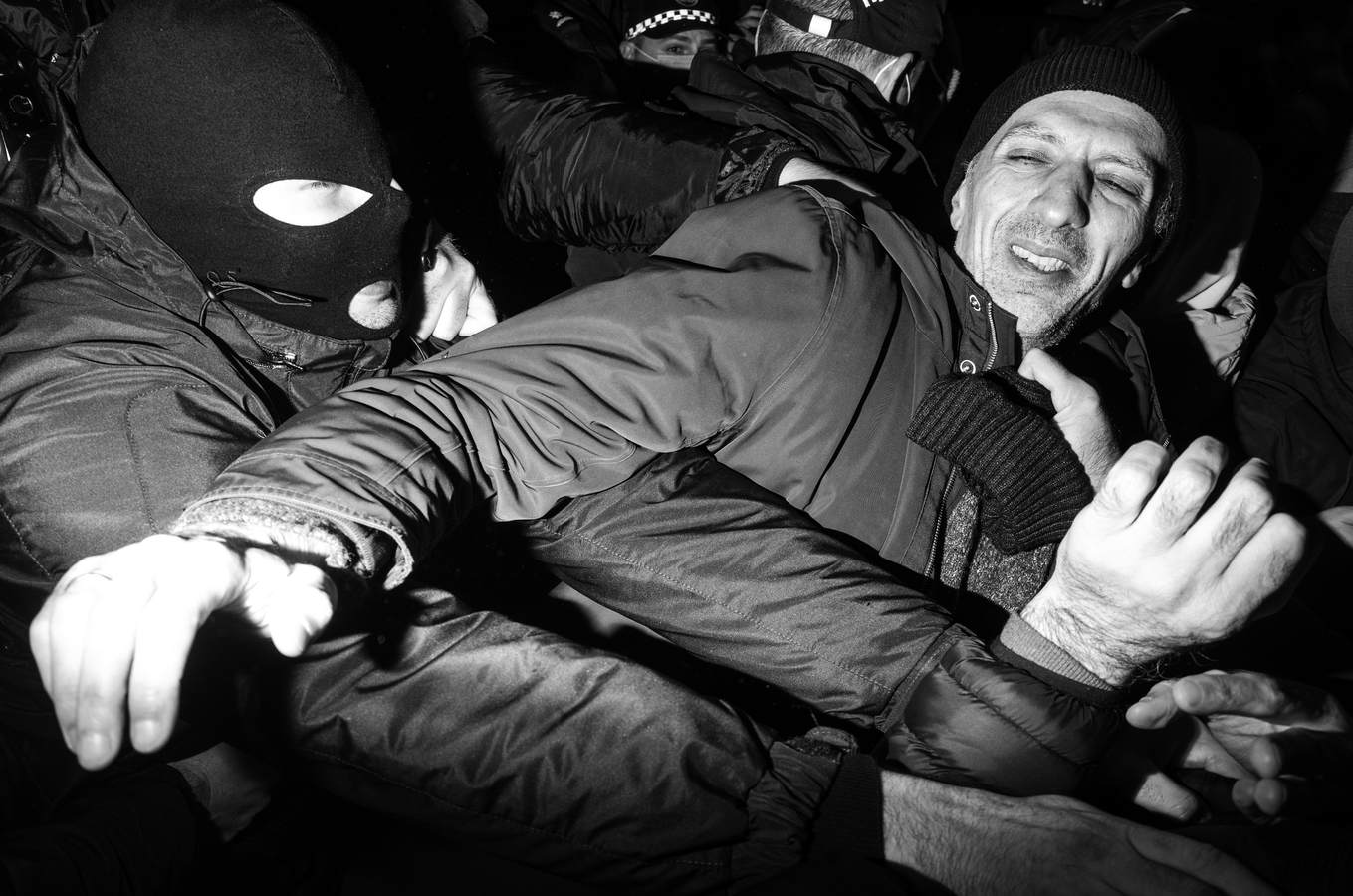
Inside the police crackdown on Georgia’s pro-EU protests: a photo report
Georgian protests took a dramatic turn amid freezing temperatures as thousands poured into the streets for a second night of demonstrations on 29 November 2024.
What began as spontaneous outrage over the government’s decision to halt EU accession talks transformed into intense confrontations with police around dawn.
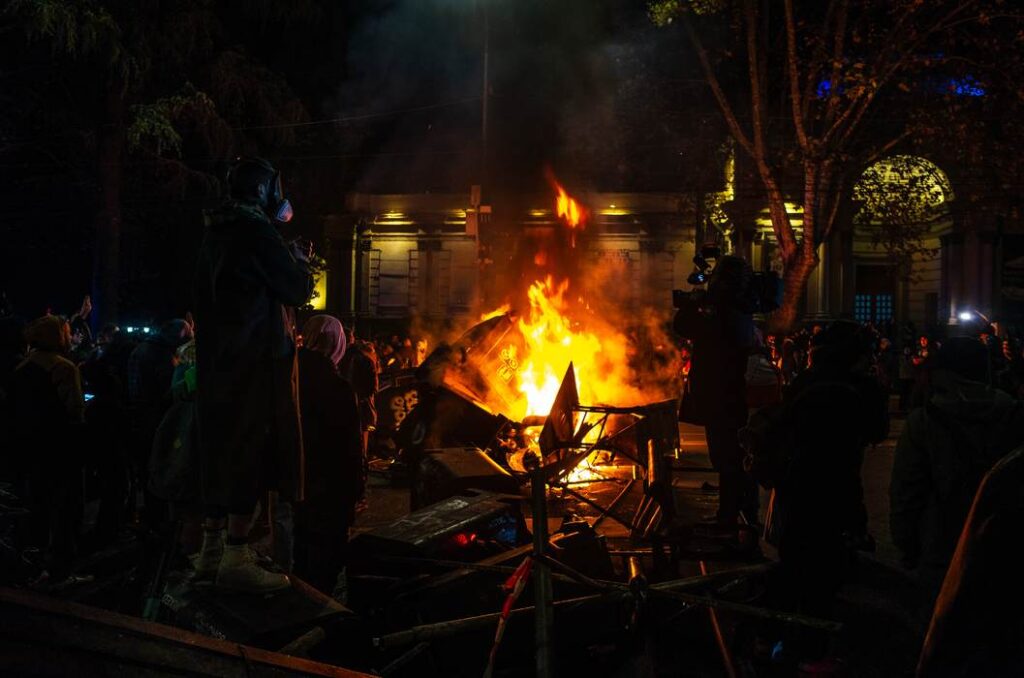
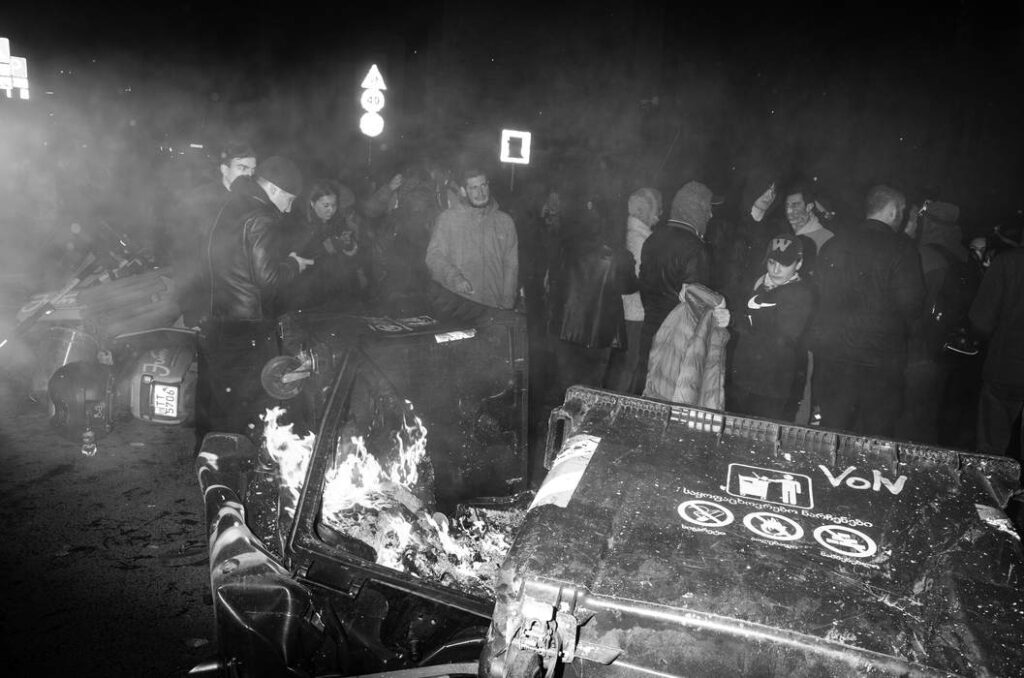
Near Rustaveli Theatre, police tactics shifted from previous protests. Rather than simply dispersing crowds, they rerouted through side streets to ambush protesters, creating dangerous stampede conditions as people found themselves pressed together with limited escape routes. Some desperately sought shelter on building rooftops.
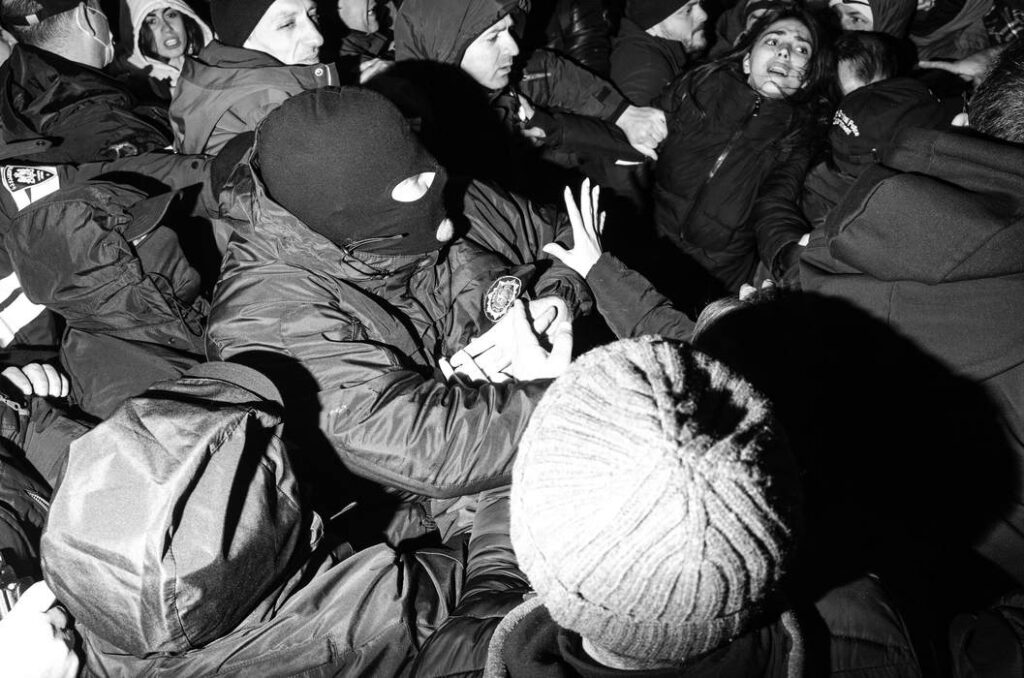
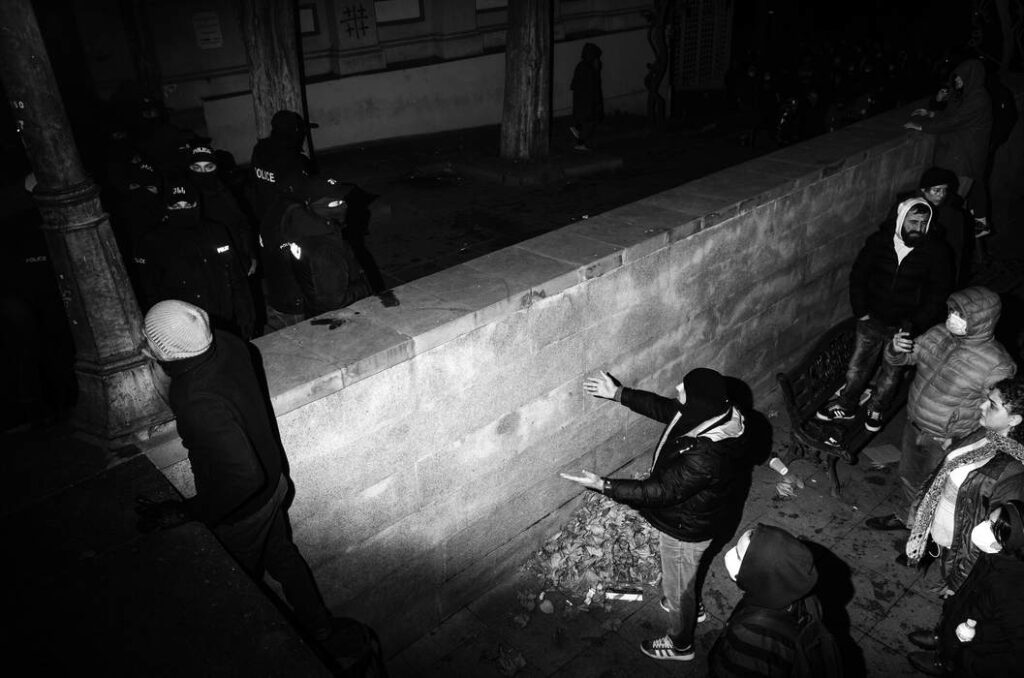
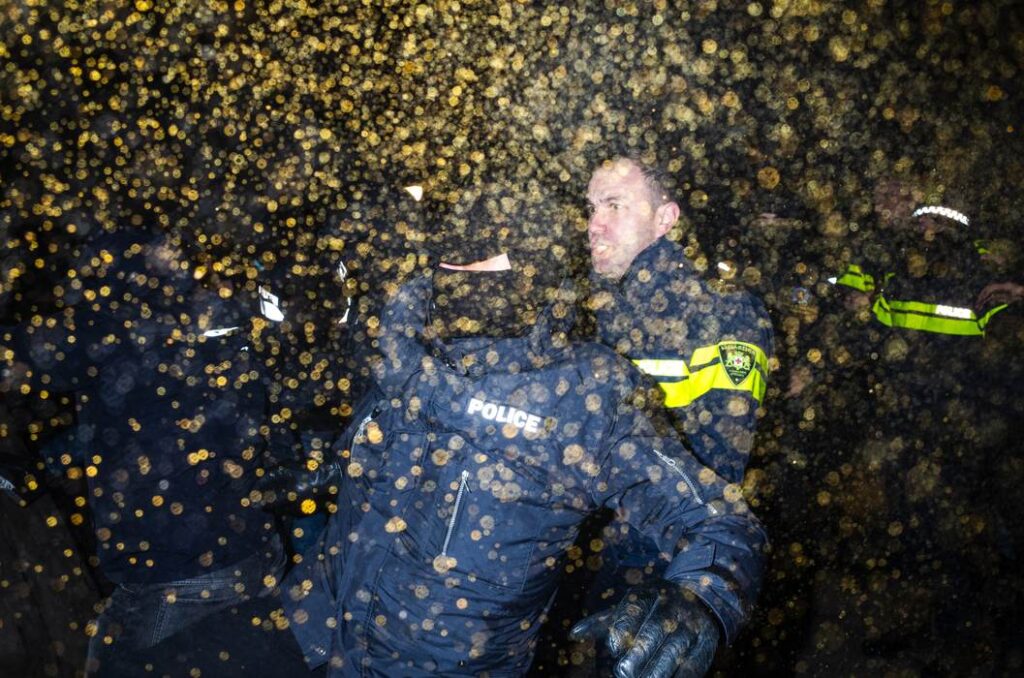
“Georgian protests were always more or less safe still,” explained activist Marika Mikiashvili. “If you were not in the main epicenter of events, you could stand somewhere on the edges or at least there were several entrances to buildings that were safe.” But this time was different – even going home became dangerous as protesters feared being “kidnapped from the side streets.”
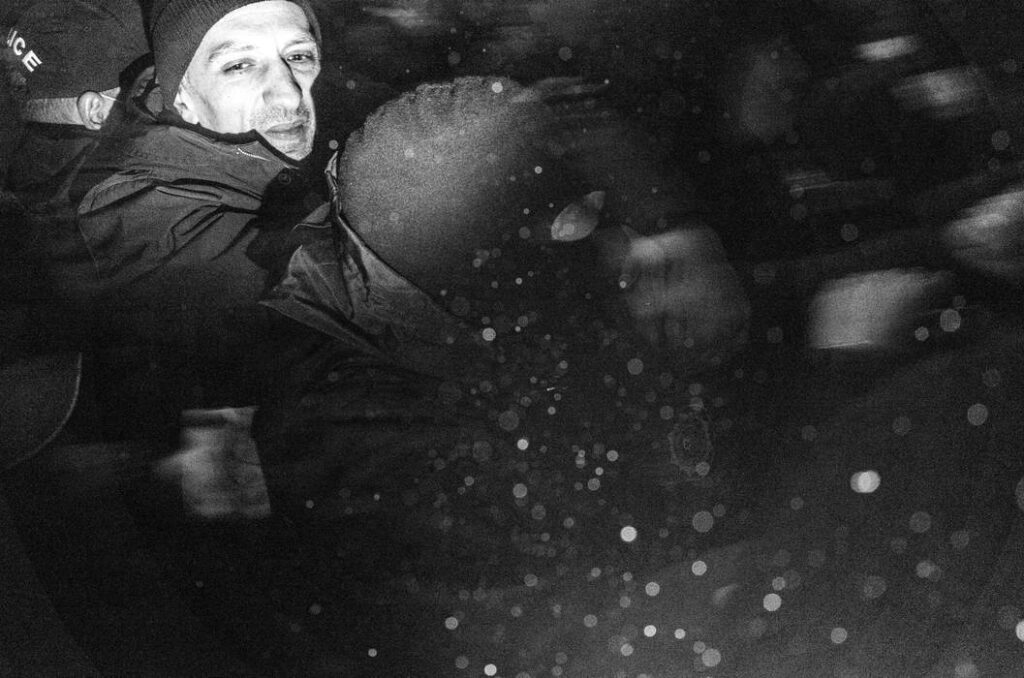
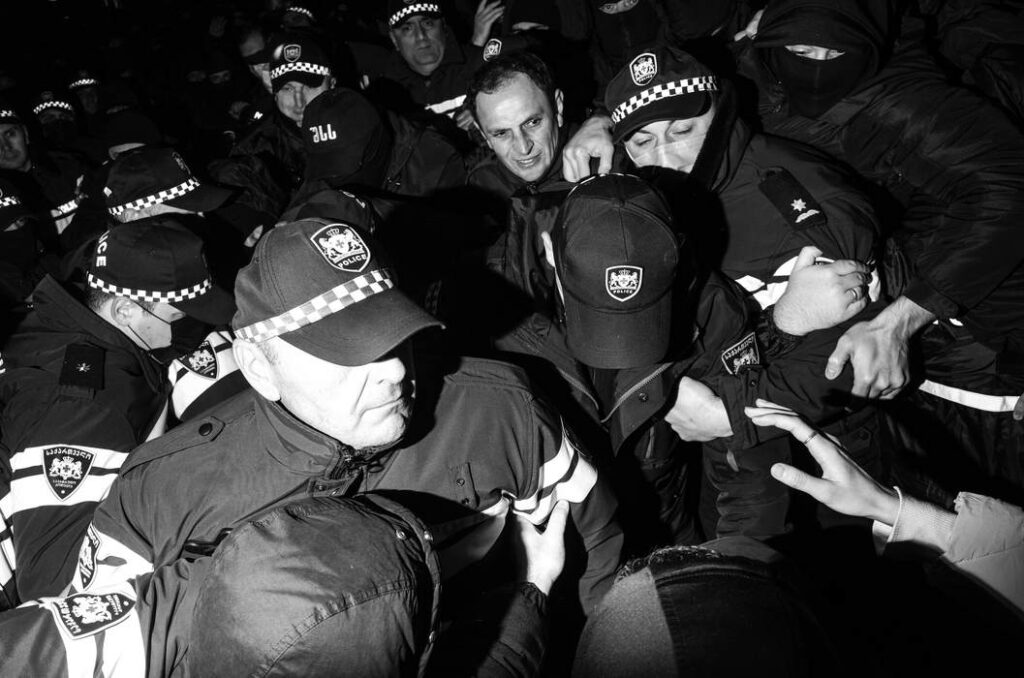
The demonstrations spread organically to cities across Georgia – an unprecedented development in a country where protests typically remain concentrated in Tbilisi.
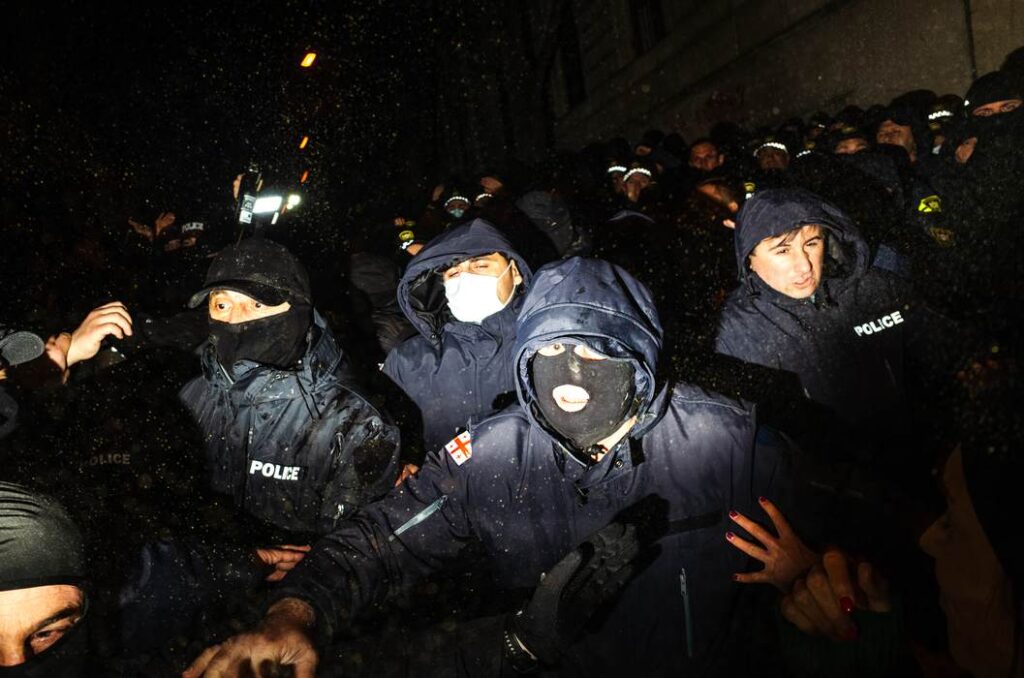
Comprising 40% of Georgia’s population, the capital had historically been the focal point of political activism. The simultaneous eruption of protests in remote towns signaled a profound shift in public sentiment.
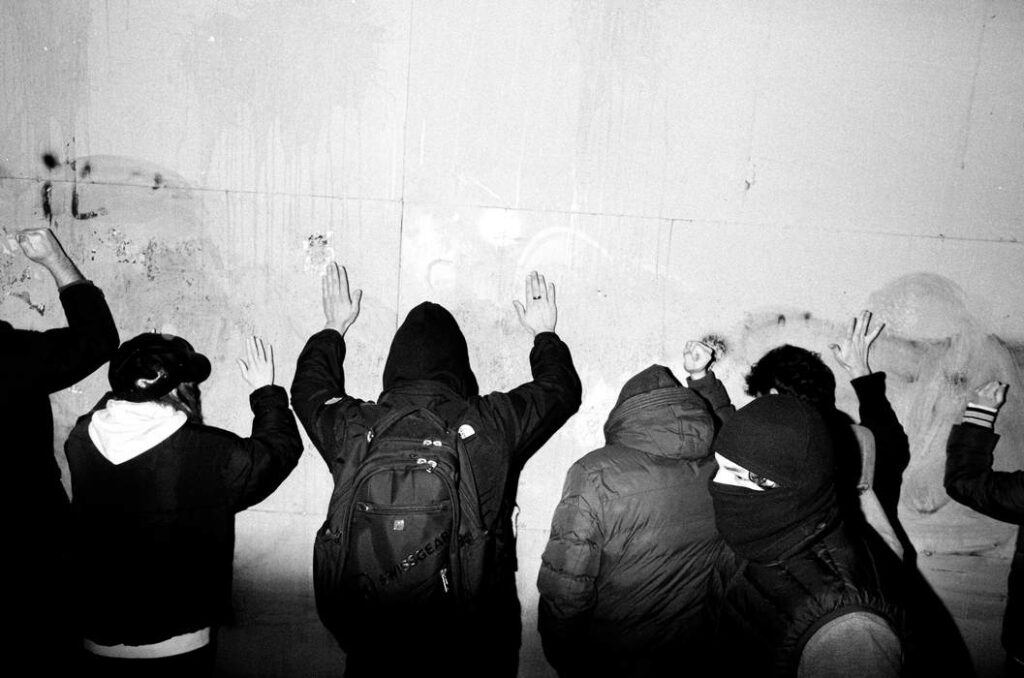
As dawn broke, police deployed water cannons containing what protesters described as a new chemical agent, causing severe burning in the eyes and breathing difficulties. Officers were seen dragging people across pavement and beating those already incapacitated by tear gas.
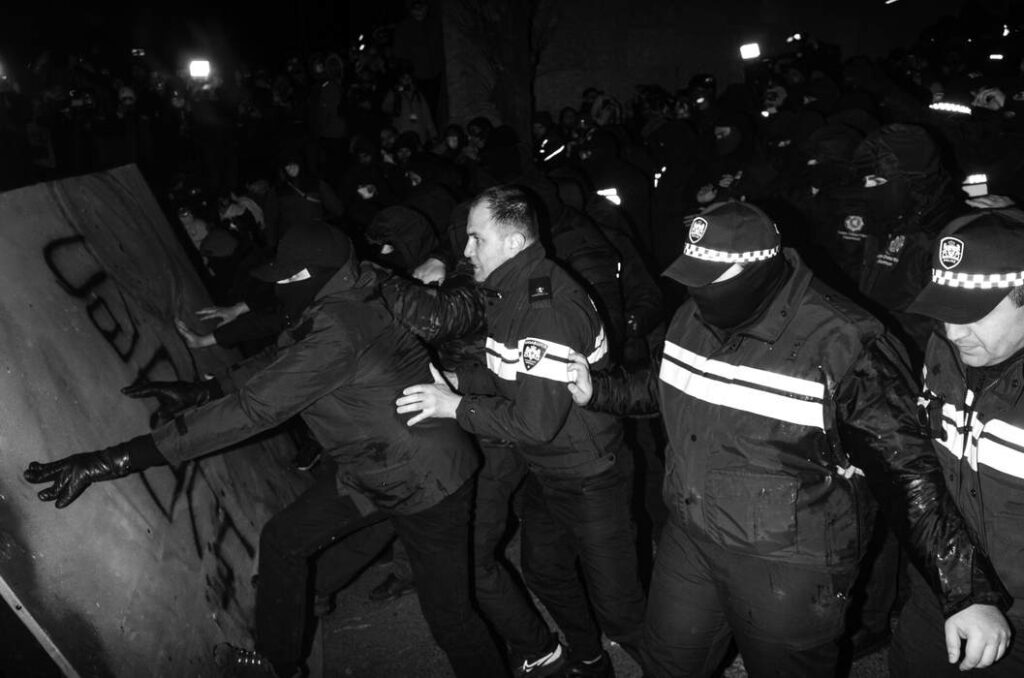
Yet despite the escalating violence, protesters remain determined to maintain pressure through nightly demonstrations. Their strategy has evolved from attempting to establish permanent camps to engaging in sustained confrontations – wearing down police forces through persistence rather than permanent occupation.
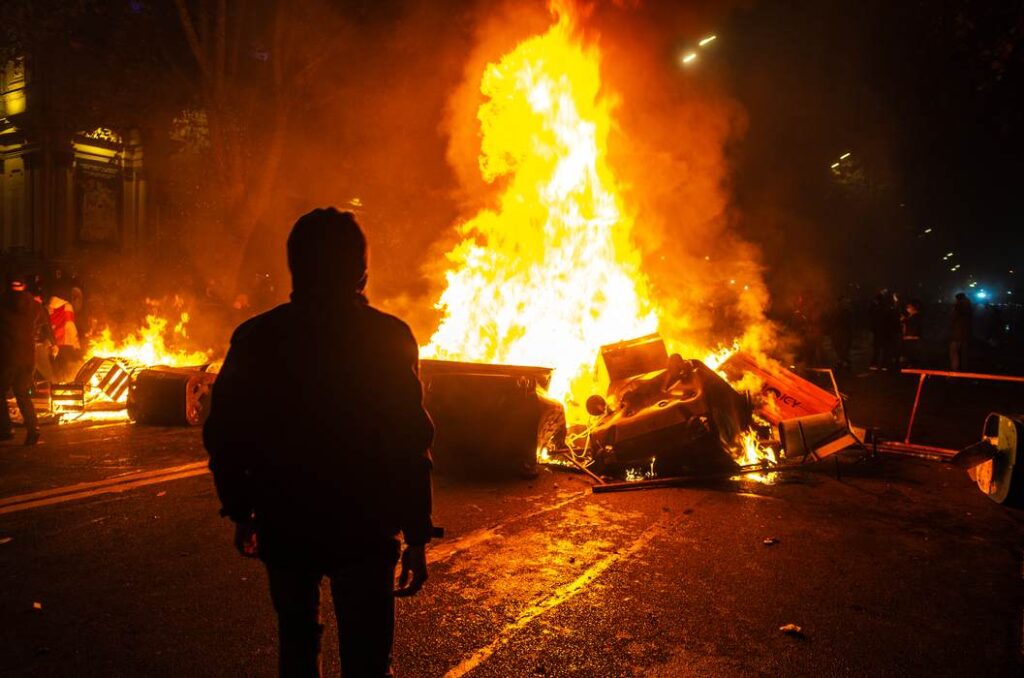
For many Georgians, these protests represent more than EU aspirations – they are seen as a last stand against what they view as Russian influence over their government. As one activist put it, the time for action is now: “Either we get rid of this… the process cannot stop. It can only go up in temperature. Otherwise, we are lost.”
Related:











